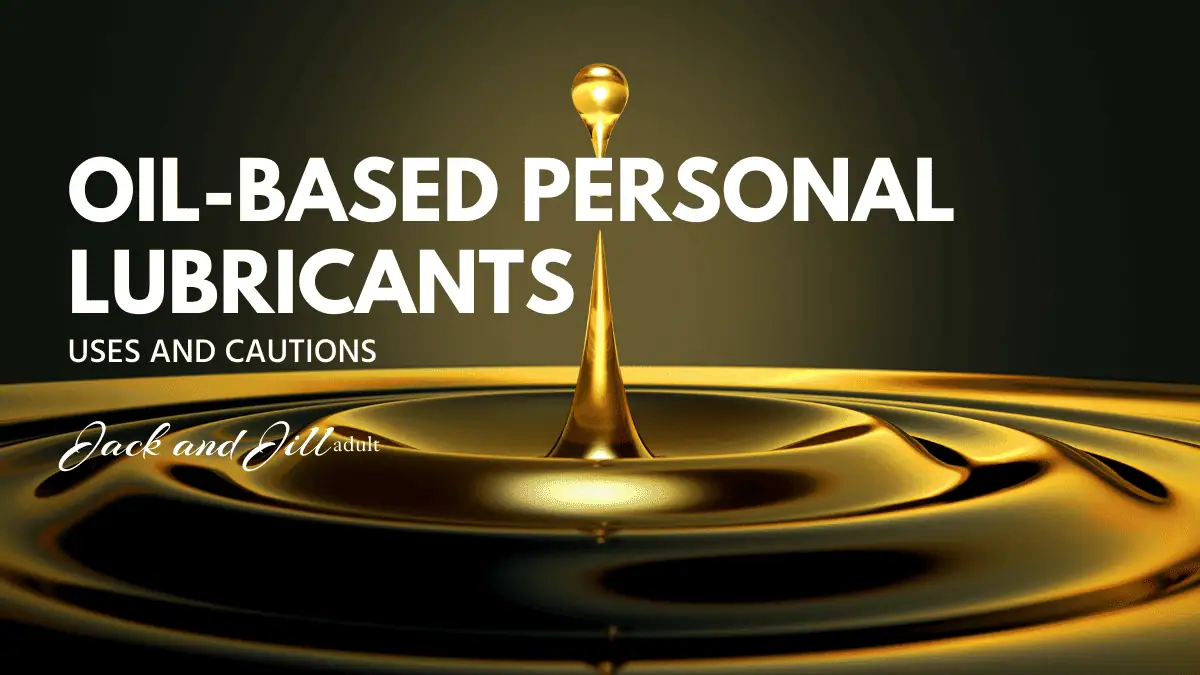
Oil-Based Personal Lubricants: Uses and Cautions
Oil-based personal lubricants can elevate the intimate experience, but not without specific precautions. While they offer prolonged moisture and comfort, particularly in contexts like water play or post-menopause, it’s critical to understand their interaction with latex products and the importance of selecting the correct variant for your body. Let’s look at the various uses of oil-based lubricants and provide crucial safety tips and cautions to help inform your choices, ensuring both pleasure and health are safeguarded.
Key Takeaways
- Oil-based lubricants provide prolonged, comfortable lubrication beneficial for anal sex and for individuals resuming sexual activity post-pause, but can degrade latex condoms and damage silicone toys.
- Oil-based lubricants may interfere with vaginal health by disrupting pH balance and increasing infection risk, requiring cautious selection and use.
- Although oil-based lubes offer benefits for prolonged lubrication and are helpful for water play, alternative lubricants like water-based and silicone-based options offer advantages such as condom compatibility and toy safety.
Exploring the Benefits of Oil-Based Personal Lubricants
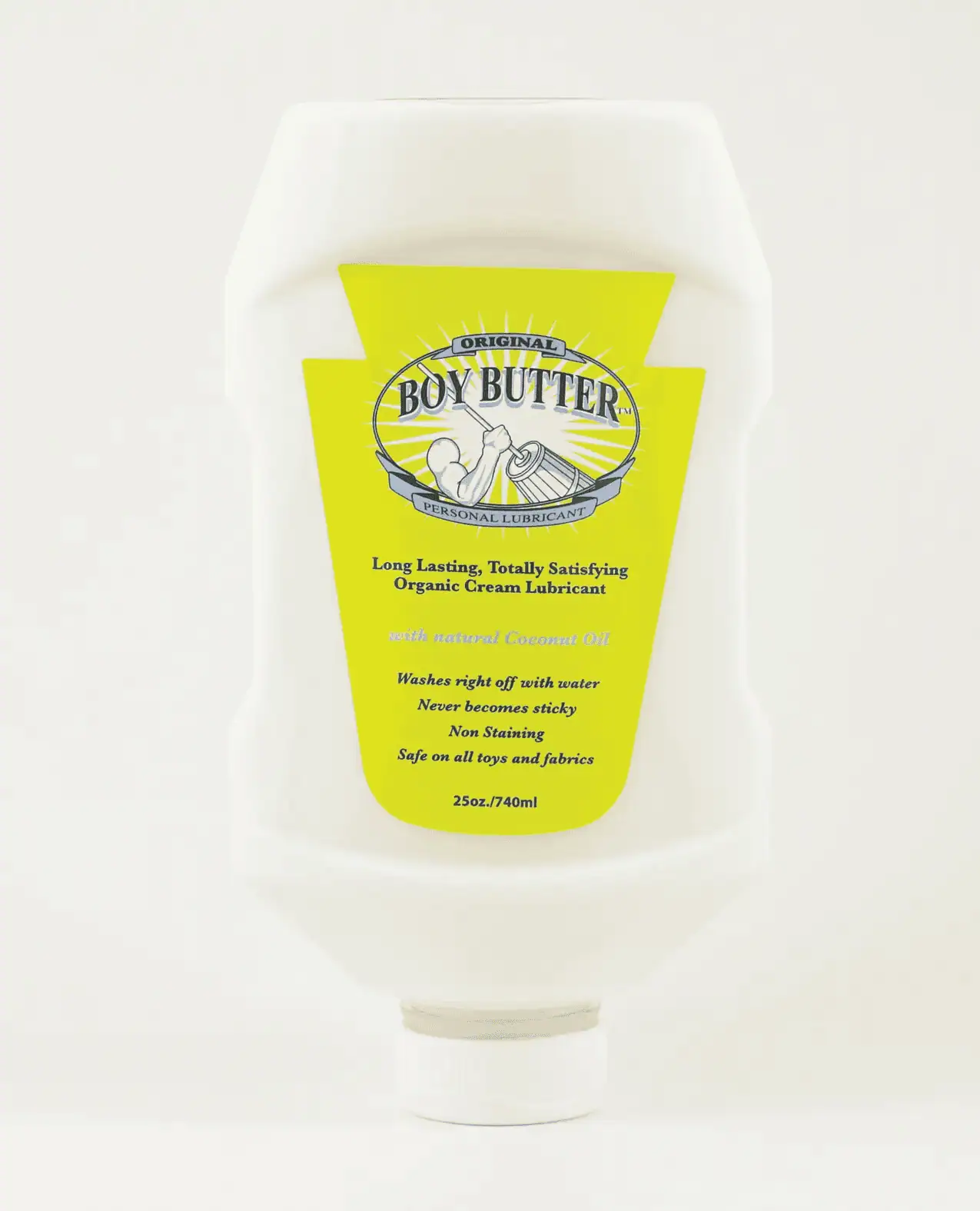
Boy Butter – 25 oz. Squeeze Bottle
The allure of oil-based personal lubricants lies in their remarkable ability to provide long-lasting lubrication. Their longevity is unmatched, making them preferred for prolonged, seamless intimacy. They offer enhanced comfort and enjoyment for individuals re-engaging in sexual activity after a period of pause, such as following childbirth or surgery. Using a personal lubricant can make all the difference in ensuring a pleasurable experience.
Oil-based lubricants are also beneficial for anal play and anal sex due to their ability to provide long-lasting lubrication in an area that naturally lacks moisture.
Enhancing Sexual Experience with Oil-Based Lubes
Beyond comfort, these lubricants also enhance the overall sexual experience, taking pleasure to new levels. Oil-based lubricants are a whispered secret among those who treasure a smooth glide, whether during a passionate embrace or solo exploration with a favorite toy. Moreover, these products’ thick, moisturizing qualities lend themselves beautifully to sensual massage and foreplay, turning a simple touch into an exquisite journey of discovery.
Ideal Uses for Oil-Based Products
Oil-based lubricants shine when it comes to making a splash. Their water-resistant nature makes them the perfect companion for aquatic escapades, ensuring that intimacy remains uninterrupted by the waves. Nevertheless, these products are ideal in situations that do not involve latex condoms or silicone toys because they can damage these materials. In such cases, consider using water-based lubes, like a water-based lube, instead.
Navigating the Risks: Cautions When Using Oil-Based Lubricants
Despite the clear advantages of oil-based lubricants, careful usage is essential to avoid potential drawbacks. One such risk is the deterioration of latex condoms, which can occur almost instantly upon contact with oil-based products, leading to a dramatic reduction in their effectiveness. Additionally, there’s the concern of sex toys becoming coated with these lubricants, necessitating the use of harsh chemicals for removal, which can be unsafe.
Moreover, specific formulations may impede the growth of beneficial vaginal bacteria or damage delicate tissues, heightening the risk of infection.
The Condom Compatibility Issue
If you’re relying on condoms for contraception and prevention of sexually transmitted infections, how well they work with oil-based lubricants is a crucial factor. The swift degradation of latex by oils found in products like baby oil can lead to condom breakage, potentially resulting in unintended pregnancy or the transmission of infections.
While coconut oil is celebrated for its natural qualities, it’s also a culprit in weakening latex, though it remains a safe choice for polyurethane alternatives.
Oil-Based Lubricants and Sex Toy Safety
Oil-based lubricants might not be the best choice in terms of ensuring the safety and durability of sex toys. For many, the go-to choice is water-based lubricants, which safeguard the integrity of the toys and provide a safer option for their use. This is especially true for silicone toys, which are particularly vulnerable to damage from oil-based products.
Common Oil-Based Personal Lubricants and Their Ingredients

Silicone Free Hybrid Personal Lubricant Water And Coconut Oil 4 Ounce
The world of oil-based personal lubricants is rich and varied, with many formulations drawing from nature’s bounty. Common ingredients like sweet almond oil, shea butter, and vitamin E are just a few examples of the natural elements found in these intimate products. These ingredients facilitate a smooth experience and offer skin-nourishing benefits, making oil-based lubricants a dual-purpose delight.
Coconut Oil: A Natural Alternative
Coconut oil, with its natural antimicrobial properties and luxurious moisturizing capabilities, is a popular choice for those seeking a natural lubricant alternative. When selecting coconut oil for intimate use, the key is to choose virgin, unrefined, cold-pressed oil to minimize the risk of irritation from additives. This offers a gentle and pure option for sensitive areas.
Olive Oil, Baby Oil, and Other Natural Oils
Olive oil and baby oil are two natural oils that can be used as lubricants, but they come with their considerations. While olive oil is effective in providing lubrication, it can disrupt the natural balance of the vagina, potentially leading to infections. Despite its gentle reputation, baby oil is not recommended for internal use as it can increase the risk of bacterial vaginosis, among other infections.
Both oils, however, are known for their lubricating properties, making them an option under the right circumstances.
Addressing Vaginal Dryness: Is Oil-Based Lube the Answer?
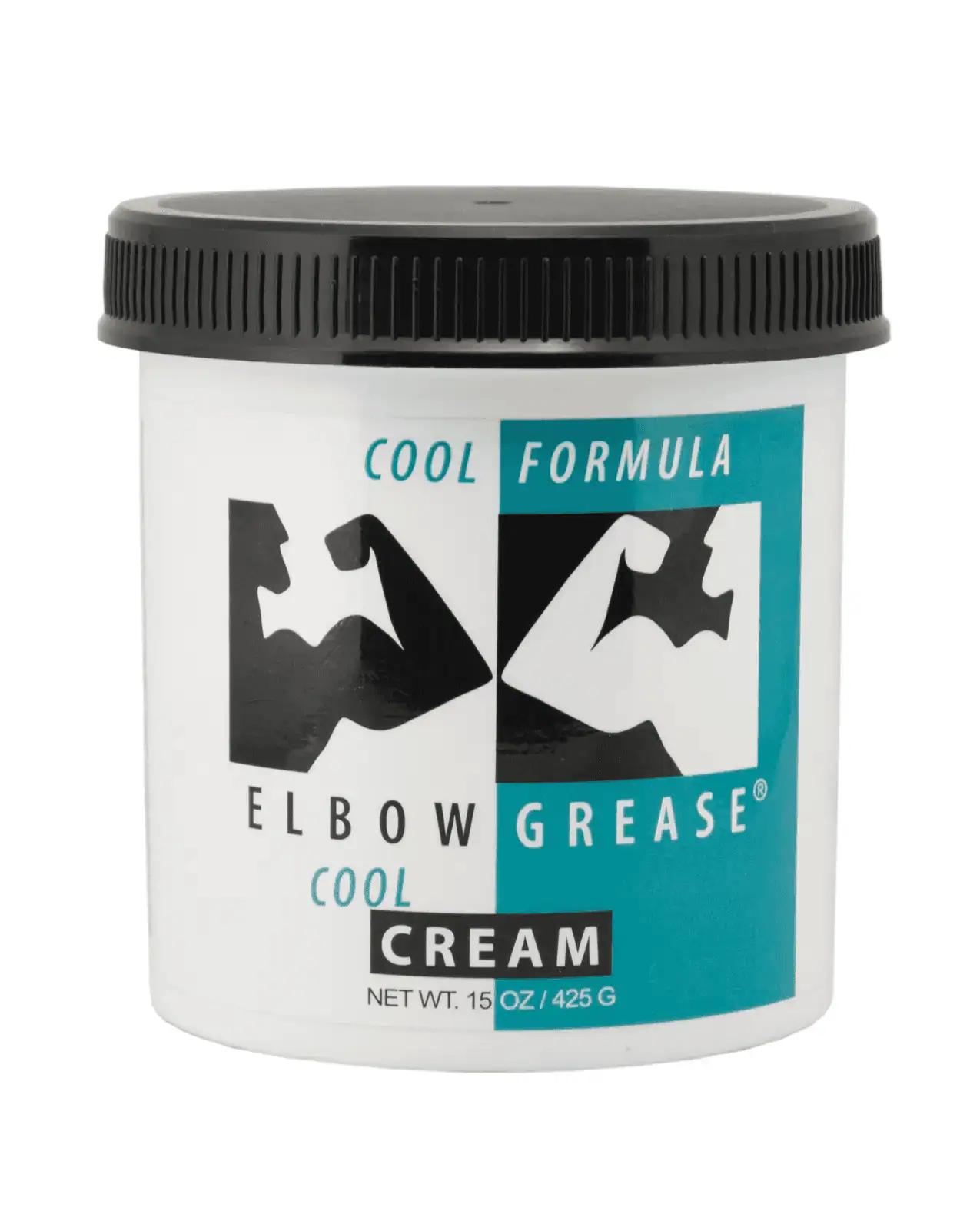
Elbow Grease Cool Cream – 15 oz jar
Many turn to oil-based lubricants as a remedy for the discomfort of vaginal dryness, a common issue faced by women due to various life stages and medical conditions. Just as a moisturizer soothes dry skin, these vaginal lubricants offer immediate relief by rehydrating the delicate vaginal tissues. Moreover, their slick nature rivals silicone-based products, offering sustained benefits and maintaining comfort over time.
Balancing Moisture and Health
While oil-based lubricants can moisturize and enhance comfort during intimate encounters, maintaining the health of the vaginal environment is equally important. Certain oils can disrupt the delicate pH balance of the vagina or coat its interior, potentially increasing the risk of infections such as yeast infections or bacterial vaginosis.
Choosing products that work in harmony with the body’s natural functions is critical, especially those that won’t interfere with the vagina’s self-cleansing ability.
How to Choose the Right Oil-Based Lubricant for You
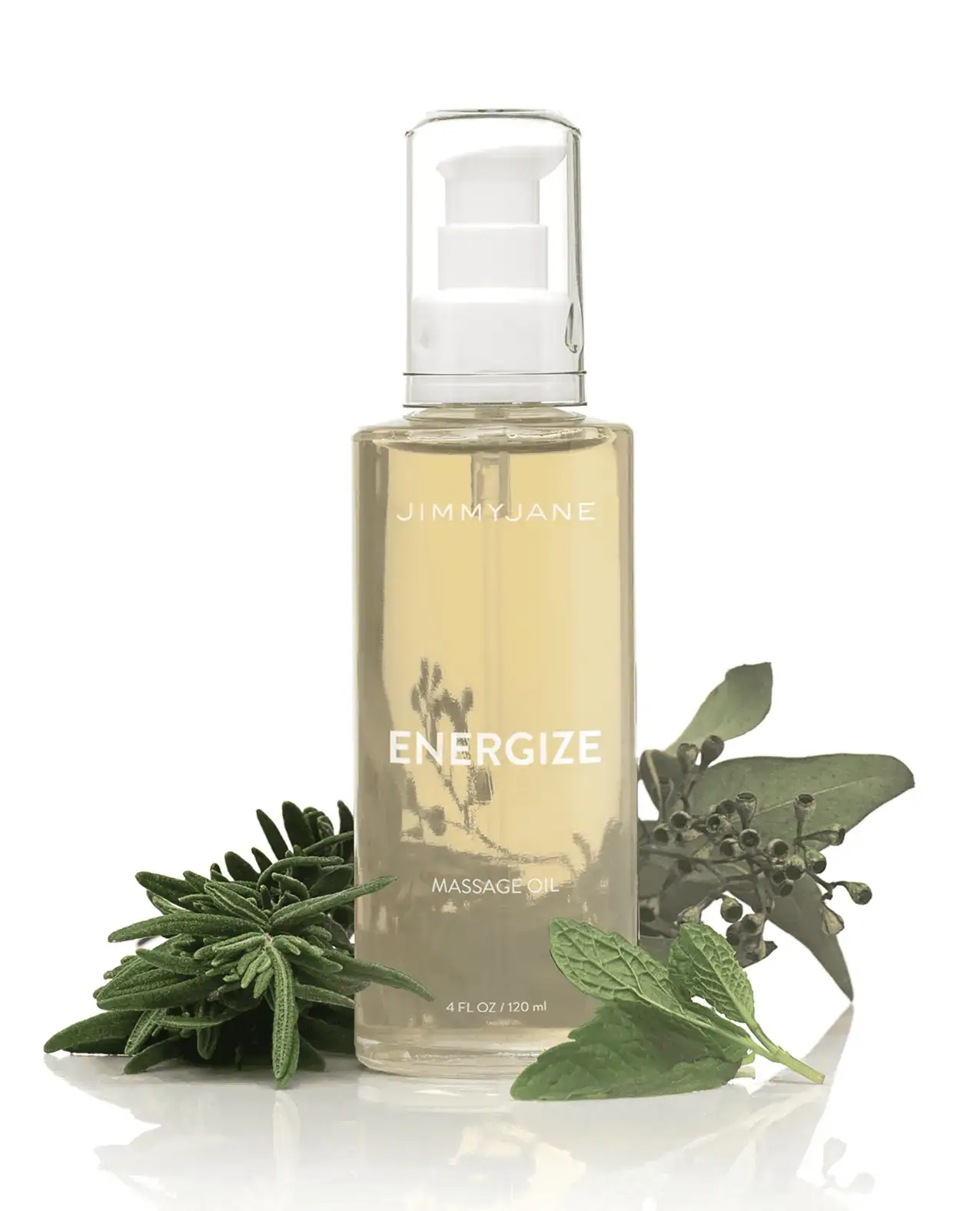
JimmyJane Energize Massage Oil – 4 oz
The selection of the perfect oil-based lubricant is a unique, individual process. It’s vital to consider individual sensitivities and preferences, such as skin type, and to ensure the lubricant feels natural and non-irritating upon application. Here are some factors to consider when choosing an oil-based lubricant:
- Skin type: Consider whether you have sensitive skin or any known allergies. Opt for a lubricant that is hypoallergenic and suitable for your skin type.
- pH balance: Look for a lubricant with the proper pH balance to maintain the natural acidity of your intimate area.
- FDA guidelines: Choosing a lubricant that meets FDA guidelines can assure safety and quality.
Considering these factors, you can find the perfect oil-based lubricant that suits your needs and preferences.
Considering Sensitive Skin and Allergies
For individuals with sensitive skin or allergies, finding a lubricant that won’t cause harm is crucial. Certified organic, hypoallergenic oil-based lubricants that contain natural ingredients are often the safest bet, minimizing the risk of allergic reactions or irritation. It’s also advisable to avoid lubricants with additives that can cause reactions, such as fragrances or alcohol.
Conducting a patch test before full use can prevent unwanted surprises and ensure a comfortable experience.
Cleaning Up After Use: Tips for Removing Oil-Based Lubricants
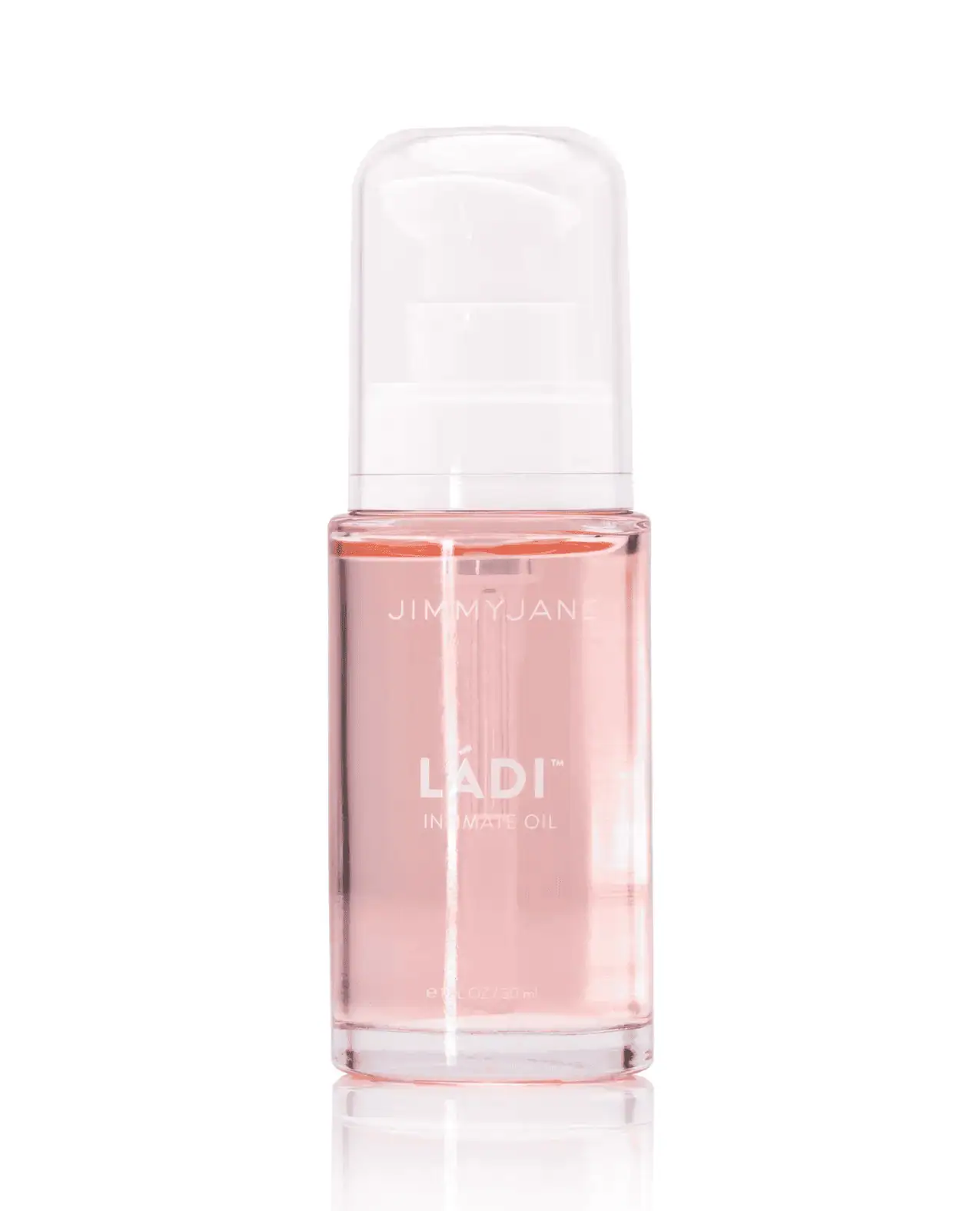
JimmyJane Ladi Intimate Oil – 4 oz
Cleaning up after using oil-based lubricants can be slightly more challenging than other types. These lubricants adhere to skin and fabrics, occasionally leaving stubborn stains. For fabrics, a degreasing dish soap such as Dawn can be effective for spot cleaning, while bleach-free stain removers work wonders on more resilient marks.
When stains persist, an overnight soak with baking soda can lift the oil from the fabric, followed by a gentle launder.
Alternatives to Oil Based Lubricants
If you’re exploring alternatives to oil-based lubricants, water- and silicone-based options are the primary contenders. Water-based options are praised for their versatility and compatibility with toys and condoms, while silicone-based lubes offer a long-lasting and hypoallergic waterproof solution. Both types cater to different needs and preferences, providing ample choice for those who switch from oil-based products.
Water-Based Lubricants: Versatile and Safe for Toys
Water-based lubricants are favored for their universal compatibility with sex toys and their mimicry of the body’s natural lubrication. Products like Pink Water and Sliquid H2O stand out for being free from potential irritants such as parabens and glycerin, offering users a safe and enjoyable experience.
Silicone-Based Lubricants: Long-Lasting and Waterproof
Those seeking a long-lasting solution might opt for silicone-based lubricants, such as silicone lube. Known for their lasting glide and derma-protective properties, they provide a consistent experience that does not dry out. Products like Pjur Original BodyGlide and Gun Oil Silicone Lubricant exemplify the benefits, though avoiding using them with silicone toys is crucial.
Summary
The delicate dance of intimacy is made smoother with the proper lubricant. With their long-lasting nature and natural ingredients, oil-based options present a pathway to enhanced pleasure and comfort. However, their potential risks, such as condom incompatibility and the chance of infection, remind us to choose wisely and use cautiously. Water-based and silicone-based lubricants offer viable alternatives, each with its unique benefits. As we navigate the intimate waters, let the knowledge shared here serve as a beacon, guiding you to the shores of safe and satisfying experiences.
Frequently Asked Questions
Can I use oil-based lubricants with all types of condoms?
No, oil-based lubricants can degrade latex condoms, but they are compatible with polyurethane condoms. Be mindful of the type of condom you are using with oil-based lubricants.
Are there any natural oils that are safe to use as personal lubricants?
Using natural oils like coconut oil as a personal lubricant can be safe, but it’s essential to choose high-quality options and be cautious, especially if you’re prone to infections.
How can I remove oil-based lubricant stains from my sheets?
To remove oil-based lubricant stains from your sheets, pre-treat the stains with degreasing dish soap or a bleach-free stain remover before washing. Try an overnight soak with baking soda and water for stubborn stains, then wash in cold water.
What are the risks associated with using oil-based lubricants?
Using oil-based lubricants can lead to degradation of latex condoms, potential damage to sex toys, and an increased risk of infections due to disruption of the vaginal flora or pH balance. It’s important to choose water or silicone-based lubricants instead.
Are water-based lubricants a better option for use with sex toys?
Yes, water-based lubricants are a better option for use with sex toys because they do not damage the materials and are generally safe and non-irritating.
